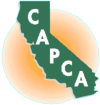IPM Program update
UC Statewide IPM Program update: Resources for ornamental growers
by Cheryl Wilen
Established in 1979, the University of California Statewide Integrated Pest Management Program (UC IPM) develops and promotes the use of integrated, ecologically sound pest management programs in California to serve agriculture, urban and community, and natural resources audiences.
The mission of the UC IPM Program is multi-faceted. We strive to increase utilization of ecologically based integrated pest management programs and provide leadership in IPM including building coalitions and partnerships that link with communities and public agencies. In addition, we seek to increase the predictability and effectiveness of pest management techniques and develop science-based pest management programs that are economically and environmentally sustainable, and socially appropriate.
We also aim to protect human health and the environment by reducing risks caused by pests and pest management practices. UC IPM is a part of the UC Division of Agriculture and Natural Resources (ANR). More than 30 employees develop and deliver programs in agricultural, urban and community, and natural resources IPM.
The UC Statewide IPM Program is often recognized for the pest management publications we coordinate based on contributions from numerous authors and technical reviewers. Integrated Pest Management for Floriculture and Nurseries (UC ANR Publication 3402) is an example of one IPM manual written specifically for the ornamental industry. These IPM manuals are only updated about every 7 to 10 years.
However, we make more frequent major updates to the online companion to the IPM manuals, the Pest Management Guidelines (PMGs), by reviewing and editing these online pages about every five years or sooner if there are new chemicals, pests or other information that may need to be added.
The most recent major update to the PMG for floriculture and nursery growers was posted in March 2009 (http://www.ipm.ucdavis.edu/PMG/selectnewpest.floriculture.html). Nevertheless, I could see when I took a quick look at the list of herbicides that we need to update it already as a new herbicide, FreeHand (dimethenamid-P and pendimethalin), didn’t make it into the list by the time it was in for final review. But that’s the beauty of the way the IPM manuals and the PMGs work together.
The IPM manuals provide help in identification, prevention and monitoring while the PMGs can provide information about the rapidly changing chemical controls as well as updated IPM information. In fact, I just contacted the main office to let them know about the herbicide omission. To keep on top of changes and updates on the UC IPM website, you can sign up for a subscription notification service (RSS) at http://www.ipm.ucdavis.edu/GENERAL/rssfeeds.html.
Another thing to keep your eye out for in 2010 is an updated version of the weed gallery that will help growers better identify their weed problems and improve access to the PMGs via web-enabled phones.
Also, within my own program, I often post my PowerPoint presentations when people request it and some other interesting items like an herbicide activity chart for container nurseries (http://cesandiego.ucdavis.edu/Integrated_Pest_Management/).
Finally, the Statewide IPM Program has been without a permanent director since 2006. I am happy to announce that after an extensive search, a new director has been selected and started his job in January 2010. Dr. Kassim Al-Khatib comes to UC from Kansas State University where he was a professor and weed scientist specializing in integrated weed management, vegetation management and pesticide drift. Prior to working in Kansas, he was a professor in Washington, where he conducted research and extension in weed science for growers in the western part of the state. We are looking forward to working with him as IPM continues to be the way Californians manage pests.
Cheryl Wilen is Area IPM Advisor, UC Statewide IPM Program and UC Cooperative Extension in Southern California.
UC IPM Website
Solve your pest management problems with UC's best information, personalize it with interactive tools, or find out about pest management research and extension projects

Cheryl Wilen's Blog
 Need to Renew your DPR or Structural Board License? Take a Brand New Online Course on Pesticide Runoff and Surface Water Protection
Need to Renew your DPR or Structural Board License? Take a Brand New Online Course on Pesticide Runoff and Surface Water Protection
Are you in need of some last-minute CEUs for 2022? We're pleased to announce that a new online course on runoff and surface water protection is available and offered for free. If you are a pest management professional working primarily in structural pest...
 February Is About Safe Pesticide Use
February Is About Safe Pesticide Use
To raise awareness of pesticide safety practices, February is celebrated as National Safety Education Month. This year the University of California Statewide Integrated Pest Management Program offers help to refresh your knowledge about safe and...
 New online course on diagnosing herbicide injury now available
New online course on diagnosing herbicide injury now available
A brand-new online course on Diagnosing Herbicide Injury focusing on how an herbicide injury situation can arise, what information can help diagnose symptoms during field investigations, and what tools are available to you, is now available...
 New online course on the management of ground squirrels and pocket gophers now available
New online course on the management of ground squirrels and pocket gophers now available
We're pleased to announce that a new online course on managing ground squirrels and pocket gophers has been added to UC IPM's growing library of online training courses. This course consists of eight video segments recorded by Dr. Roger Baldwin, a...
Stop using Weed Slayer 12/4/2020
This is especially important if you are an organic grower or manage areas that are not supposed to be treated with synthetic herbicides
THE MESSAGE BELOW IS FROM THE California DEPARTMENT OF FOOD AND AGRICULTURE
CDFA ISSUES STOP USE NOTICE...












